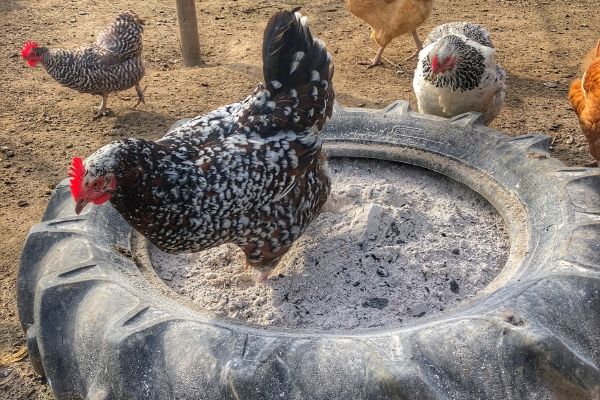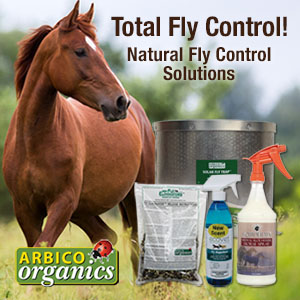
Summer is here and you should be thinking about protecting your birds from the extreme heat. Heat can have a very detrimental effect on birds. Poultry do not sweat to provide cooling. Instead, they are cooled by blood that flows through the comb and wattles. As the warm blood circulates through the comb and other head appendages, it is cooled and returns to the interior portion of the body. In extreme heat, the head appendages cannot provide enough relief and the bird can die or, at the very least, become unproductive. Birds can suffer from heat stroke, and it is not a pretty sight.
Shade and plenty of fresh water are a must in summer. Birds can withstand some very extreme temperatures if they are shielded from the sun and can cool off via the intake of water. In addition, they love to take dust baths and work the cool dirt particles into their feathers. It is amusing to watch birds with access to dirt lie on the ground and develop a hole by ruffling their feathers and digging with their claws. This not only helps keep them cool but also aids in controlling lice and mites and other parasites. Fans should be provided birds that are housed inside and do not have access to dirt. The fans move the air which results in a cooling process. They should also have access to fresh, clean water and not be exposed to direct sunlight.
Waterfowl are easy to care for in the summer. If they have shade and a nice pool to jump in, they are happy campers. Small wading pools that are sold at discount stores work well for this. They are easy to empty and clean and provide enough water for birds to submerge themselves. It is always fun to watch them play in the water right after the pools are filled.
Direct sunlight also has a negative effect on feather condition and can render birds unfit for shows until they have gone through a molt. This is particularly true if you live in an area that has high heat and low humidity. Low humidity dries out the feathers and they become brittle and more susceptible to breakage. The males of many white varieties will sunburn readily; especially if they do not possess the silver white gene that is often discussed in discussions of poultry genetics. The color on nonwhite birds such as buff or partridge, will fade rapidly and not return until a molt is complete.
In summary, birds need extra care and attention in summer just as they do in winter. If you want to keep them in production and in show condition, it is imperative that they have continuous access to fresh water and shade and minimum exposure to direct sunlight.
Use the techniques to help keep your poultry cool, healthy and more productive during summer heat.

Dust Bath
A dust bath can be as simple as an area of the yard where the birds have worn the grass away and only dirt survives but providing additional ingredients can offer your birds even more pleasure. The most desired materials for a dust bath are sand, dirt and sifted wood ash. Many people feel the wood ash also helps prevent fleas and other bugs from moving in on the birds’ feathers. Create a frame for the bath contents with wood or use an existing container such as a kiddie pool, kitty litter box, dish pan, unused sandbox or even an old tire. It only needs to be deep enough to retain the dirt mixture. Mix well equal parts dirt, sand, and sifted wood ash. The wood ash needs to be sifted to remove small lumps of charcoal that can damage feathers. Place the dust bath in a shaded area, near feeders and waterers. Providing your birds with a dust bathing area will also help keep them out of your garden beds.
Cooling the Coop
Housing can be cooled down by increasing air circulation. Open doors and windows to generate a breeze or install a fan. Be sure the coop is properly vented so hot air doesn’t get trapped against the ceiling. Hosing down the outside walls and roof improves cooling through evaporation, as does occasionally misting or fogging the chickens themselves. Take care not to mist so much that the water puddles. Mist only adult chickens and only when the temperature is above 95°F and the relative humidity is below 75 percent. Cooling won’t occur if the air is already so humid that water cannot evaporate. Mist only when the fan is running, or air circulation is otherwise sufficient to dry your birds. Chickens that have no shade tend to stay indoors, where the air circulation is not as good as it might be in a shady outdoor area. Shade is particularly important for dark-colored birds, which don’t reflect sunlight as well as white and light-colored birds and therefore are more susceptible to heat stroke.
Provided by The American Poultry Association.
Related Articles & Free Email Newsletter Sign Up
How to Identify the Sex of Chicks
How to Move Young Chicks Outdoors
How to Protect Poultry from Predators




Comment here